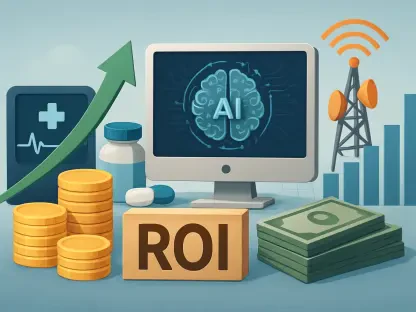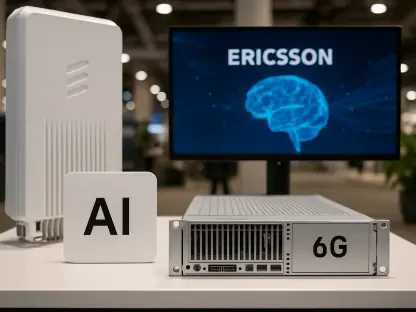The telecom industry is facing a significant shift towards the experience-driven economy, where businesses focus on delivering personalized experiences. For telcos, this transition offers opportunities to deepen customer relationships, drive growth, and achieve competitive differentiation. However, it also poses several challenges that require innovative strategies and technologies.
The Shift to Experience-Driven Economy
The emergence of the experience-driven economy marks a pivotal transformation, shifting the focus from merely selling products to offering personalized and unique customer experiences. This change is particularly essential for telecommunications companies (telcos), recognizing their unique ability to leverage massive volumes of customer data and real-time connections. Positioned advantageously, telcos have the potential to shape this new paradigm, integrating personalized services that emotionally resonate with their customers.
Understanding the New Paradigm
The foundation of the experience-driven economy lies in the creation of experiences that stand out as unique and personal. Businesses, including telcos, are now expected to prioritize an understanding of individual customer needs, preferences, and behaviors, extending well beyond transactional services. Telcos’ intrinsic capabilities, like extensive customer reach and the ability to collect real-time data, render them leaders in this realm. The opportunity lies in using these capabilities to move from a transactional foothold into a more holistic, experience-centric approach, fostering engagement at an unprecedented scale.
Digital Brands Leading the Way
Examining companies such as Netflix and Uber illustrates how data, when used strategically, can transform customer interaction into something extraordinarily personal and engaging. These brands masterfully leverage real-time data to customize experiences that cater precisely to the desires of their users. This level of hyper-personalization creates not only satisfaction but deep-seated loyalty, emphasizing the emotional and intellectual connection that customers feel toward the brand. Telcos can draw from these examples, adapting similar methodologies to innovate their customer interaction frameworks.
Telcos’ Role in the Experience Economy
Telcos are naturally inclined to benefit from the shift toward experience-driven services due to their structural capabilities and vast data reserves. Nonetheless, maximizing this potential requires a reevaluation of how customer interactions are managed and transformed.
Moving Beyond Transactions
Modern-day telcos must transition from treating customer interactions as mere transactions. An interaction with a customer should not be seen as a solitary event but part of an ongoing relationship that evolves over time. By focusing on creating seamless, intuitive experiences, telcos can significantly improve customer engagement and satisfaction. This entails creating comprehensive digital journeys where each interaction is meaningful, consistent, and personalized, ultimately fostering a deeper connection with the customer.
Leveraging Customer Data
A critical component of this transition is the effective utilization of customer data. Telcos possess vast amounts of data but often underutilize it, sticking mainly to network optimization and broad-based targeting campaigns. Shifting the focus to employing real-time data for creating personalized experiences can revolutionize how telcos engage with their customers. By understanding intricate customer behaviors and preferences, telcos can tailor experiences that uniquely resonate with each individual, thereby fostering a more loyal customer base.
Overcoming Challenges
Transitioning to an experience-driven model introduces its own set of significant challenges. From creating a unified, intelligent ecosystem to transforming functional transactions into deeper relationships, telcos will need to navigate several hurdles.
Building an Intelligent Ecosystem
One of the principal challenges lies in constructing a seamless, intelligent ecosystem that transcends all customer touchpoints. While apps and digital platforms have simplified basic tasks, complex needs still drive customers to physical locations or call centers, creating a fractured experience. To mitigate this, telcos must consolidate these touchpoints, ensuring consistency and integrating intelligence across all interactions. This intelligent ecosystem should be capable of seamless data flow and real-time responsiveness, providing a unified customer experience regardless of the channel.
Converting Transactions to Relationships
For telcos, the ultimate goal is to transform simple transactions into enriching relationships. This shift requires a more profound engagement strategy, moving beyond functional service provision to an approach that genuinely supports and engages customers. By leveraging deeper data insights, telcos can anticipate customer needs, offer proactive solutions and foster a sense of continuous support. This relational approach can significantly enhance customer satisfaction and loyalty, providing a competitive edge in a crowded market.
Harnessing AI and Modern Technologies
Artificial Intelligence (AI) and modern technologies are indispensable tools for telcos aiming to thrive in the experience-driven economy. These advancements enable telcos to innovate customer service and personalize interactions at an unprecedented level.
AI Enhancing Customer Service
AI’s role in enhancing customer service cannot be understated. By integrating AI with modern Business Support Systems (BSS), telcos can establish a customer-centric approach. AI offers capabilities such as real-time data analysis, which empowers customer service agents to provide personalized assistance efficiently. For instance, AI can offer relevant solutions based on historical and current customer data, preempting issues before they even arise. This proactive approach can create a tailored experience that feels intuitive and deeply personal, setting new standards in customer service.
Digital Twins and Predictive Analysis
Digital twin technology, which combines behavioral, transactional, and contextual data, takes personalization a step further. This technology allows telcos to simulate and predict customer needs and behaviors, creating opportunities for preemptive action. By understanding the multifaceted aspects of customer interactions, telcos can ensure that their services are aligned with real-time customer states and preferences. This predictive capability is critical in refining the customer experience, ensuring that each interaction is timely, relevant, and valuable.
Personalization Examples and Practical Applications
The practical applications of AI and modern technologies in personalization are vast and impactful. From real-time solutions to enhanced connectivity for remote work, these examples illustrate how telcos can significantly enhance user experiences.
Real-Time Solutions
One of the notable advantages of AI is its capacity to detect and address customer needs proactively. By offering tools such as digital wellness platforms for parental controls or personalized travel guides for frequent travelers, telcos can add substantial value to the customer experience. This not only improves the utility of telco services but also aligns them more closely with the daily lives of users, fostering a deeper connection and sense of loyalty.
Enhancing Remote Work Connectivity
With the growing prevalence of remote work, telcos have an opportunity to enhance connectivity solutions to address common challenges faced by remote employees. For instance, by dynamically switching connections to prioritized 5G networks, telcos can offer a reliable and uninterrupted internet experience, crucial for remote workers. Such real-time solutions not only improve user satisfaction but also position telcos as essential partners in an increasingly digital and distributed work environment.
Strategic Importance and Future Outlook
The strategic importance of embracing an experience-driven model for telcos is multifaceted, impacting customer loyalty, market share, and profitability. By focusing on AI-driven personalized experiences, telcos can ensure their relevance and leadership in a competitive market.
Building Loyalty and Retention
Delivering superior, AI-driven customer care is a strategic necessity for telcos. In a saturated market where telco services may often seem indistinguishable, personalized and proactive customer experiences can be a key differentiator. Such experiences help build deeper loyalty, which in turn drives higher retention rates. By addressing individual customer needs in a way that feels personal and proactive, telcos can strengthen their market position, ensuring sustained revenue growth and profitability.
Embracing Vision and Strategy
The telecom industry is experiencing a dramatic shift towards an experience-driven economy, where the primary focus is on delivering personalized customer experiences. For telecommunications companies, this transition presents significant opportunities to deepen their relationships with customers, propel growth, and carve out a competitive advantage. However, alongside these opportunities come numerous challenges that necessitate the adoption of innovative strategies and advanced technologies.
The emphasis now is on understanding individual customer needs and providing tailored solutions that enhance satisfaction and loyalty. Telcos must invest in advanced analytics, AI, and machine learning to derive actionable insights from vast amounts of data. These insights can then inform service improvements, personalized marketing, and customer care enhancements.
Moreover, the integration of cutting-edge technologies can streamline operations, reduce costs, and improve service delivery efficiency. Navigating this shift requires agility, forward-thinking leadership, and a commitment to continuous innovation, ensuring telcos can effectively compete in an ever-evolving market.









